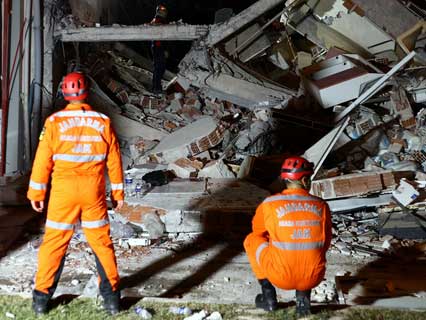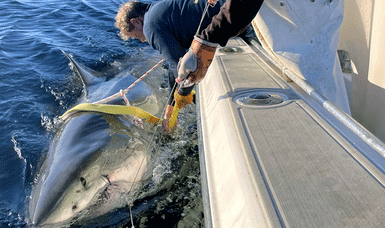Magnitude 6.1 Earthquake Hits Western Turkey, Causing Buildings to Collapse
A powerful earthquake with a magnitude of 6.1 struck western Turkey on Monday, October 27, causing widespread damage and panic. The quake was centered in the town of Sindirgi in Balikesir province and was felt in Istanbul and nearby provinces, including Bursa, Manisa, and Izmir. The earthquake occurred at 22:48 local time at a depth of 5.99 kilometers, according to the Disaster and Emergency Management agency (AFAD).
Impact and Damage
The earthquake had a significant impact on the affected area, with at least three buildings and a shop collapsing in Sindirgi. According to Interior Minister Ali Yerlikaya, the collapsed buildings were likely weakened by previous earthquakes in the region. Sindirgi’s district administrator Dogukan Koyuncu confirmed that no loss of life had been identified so far, but the assessment was ongoing.
The private NTV television quoted the fire brigade as saying that three inhabited buildings, previously damaged by an earlier earthquake, had collapsed. The buildings were likely unable to withstand the force of the latest quake, highlighting the vulnerability of structures in the region.
Previous Earthquake
Sindirgi was also hit by a magnitude 6.1 earthquake in August, which killed one person and injured dozens. Since then, the region around Balikesir had been hit by smaller shocks, making the recent earthquake even more concerning. The repeated earthquakes have likely caused significant stress on the buildings and infrastructure in the area, making them more susceptible to damage.
Response and Assessment
The Turkish authorities have launched a swift response to the earthquake, with rescue teams and emergency services rushing to the affected area. The Disaster and Emergency Management agency (AFAD) is working closely with local authorities to assess the damage and provide support to those affected.
The interior minister, Ali Yerlikaya, has confirmed that the government is taking the situation seriously and is working to ensure the safety of the public. The district administrator, Dogukan Koyuncu, has also assured the public that the assessment is ongoing and that all necessary measures are being taken to respond to the situation.
Earthquake Frequency in Turkey
Turkey is prone to earthquakes, sitting on top of major fault lines. The country has experienced several significant earthquakes in recent years, including a devastating magnitude 7.8 earthquake in 2023 that killed over 53,000 people and destroyed hundreds of thousands of buildings. The region around Balikesir is particularly vulnerable to earthquakes, and the recent quake is a reminder of the importance of earthquake preparedness and mitigation measures.
Conclusion
The recent earthquake in western Turkey is a significant event that highlights the importance of disaster preparedness and response. The Turkish authorities have shown a swift and effective response to the situation, and the assessment is ongoing. It is essential for the public to remain vigilant and follow the instructions of the authorities to ensure their safety.
Earthquake Safety
Earthquakes can be devastating natural disasters, and it is essential to take steps to prepare for them. Some key earthquake safety tips include:
- Knowing the earthquake risk in your area and taking steps to mitigate it
- Having a plan in place in case of an earthquake
- Securing heavy furniture and objects to prevent them from falling
- Practicing earthquake drills and knowing what to do during an earthquake
By taking these steps, individuals can reduce their risk of injury and property damage during an earthquake. The recent earthquake in western Turkey is a reminder of the importance of earthquake preparedness and response.
Future Plans
The Turkish government has pledged to continue working on disaster preparedness and response measures to mitigate the impact of future earthquakes. This includes strengthening buildings and infrastructure, improving emergency response systems, and educating the public on earthquake safety.
The government has also emphasized the importance of rebuilding and reconstruction efforts in areas affected by previous earthquakes. This includes implementing new building codes and zoning regulations to ensure that buildings are designed and constructed to withstand earthquakes.
By taking a proactive approach to disaster preparedness and response, Turkey can reduce the impact of future earthquakes and save lives. The recent earthquake in western Turkey is a reminder of the importance of continued efforts in this area.
Earthquake Insurance Tips in Turkey
Turkey is prone to earthquakes, and having the right insurance coverage is crucial to protect your property and financial well-being. Here are some valuable tips to consider:
Understanding DASK Insurance
DASK (Doğal Afet Sigortaları Kurumu) is Turkey’s mandatory earthquake insurance system, designed to cover damages to residential buildings caused by earthquakes. It’s a legal requirement for property owners, and without it, you may face issues with registering your property or getting utilities connected.
What Does DASK Cover?
DASK insurance covers damage to the main structure of your property, including ¹ ²:
- Foundations: Damage to the foundation of your building
- Walls: Cracks or collapse of walls
- Roofs: Damage to roofs and chimneys
- Floors: Damage to ceilings and floors
- Staircases and Elevators: Damage to staircases and elevators
What’s Not Covered?
- Debris removal costs: Costs associated with removing debris after an earthquake
- Loss of revenue: Loss of income due to business interruption
- Alternative residence expenses: Costs of temporary accommodation
- Personal belongings: Damage to personal belongings and valuables
Tips for Choosing DASK Insurance
- Compare prices: DASK insurance prices can vary between companies, so compare prices before making a decision
- Review insurance terms: Carefully review the terms and conditions of the insurer, especially regarding earthquake coverage
- Coverage limitations: Ensure the coverage is adequate for your needs
How to Get DASK Insurance
Getting DASK insurance is relatively straightforward ¹ ³:
- Choose an insurance company: Select a reliable insurance provider
- Submit necessary documents: Provide documents like the property deed (Tapu) and Turkish National Identification Number (T.C. Kimlik No.)
- Property evaluation: The insurance company will assess your property’s value and risk
- Pay the premium: The premium amount will depend on several factors, including the size and location of your property
Additional Tips
- Consider additional insurance: You may want to consider additional insurance to cover personal belongings and valuables
- Review and update your policy: Regularly review and update your policy to ensure you have adequate coverage
- Understand the claims process: Familiarize yourself with the claims process and requirements in case of an earthquake
By following these tips, you can ensure you have the right earthquake insurance coverage in Turkey and protect your property and financial well-being







